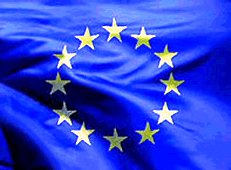 European Union leaders have reached a deal to set up a joint supervisory body for the euro-zone banks next year as the first step towards a banking union in the single currency area.
European Union leaders have reached a deal to set up a joint supervisory body for the euro-zone banks next year as the first step towards a banking union in the single currency area.
They agreed on Thursday night at the start of their two-day summit in Brussels to create the legal framework for the gigantic project by the end of this year and to begin its operation gradually next year.
Under the plan, more than 6,000 banks in the 17-nation euro zone will be put under the single supervisory body, which will be led by the European Central Bank based in Frankfurt.
Announcing the agreement at the end of the opening session, which lasted until the early Friday, President of the European Council Herman Van Rompuy said the Single Supervisory Mechanism, which aims to prevent banking risks and cross-border contagion, is an important step towards a stable economic and monetary union.
As soon as the SSM comes into force in 2013, it will open the way for the euro zone's permanent bailout fund, the European Stability Mechanism, to recapitalise the troubled banks directly, Rompuy said in a press statement.
The euro zone finance ministers will work out the modalities of the ESM injecting capital directly into banks, without adding to their governments' debts.
The ECB, which has a central role in the supervisory body, has been given powers to intervene directly in any euro zone banks, Rompuy said.
The EU leaders also agreed that the ECB's banking supervisory functions will be strictly
The single supervisory body is the first step towards a 'complete integrated framework for the financial sector,' Rompuy said.
"Other steps also need to be taken quickly, starting with harmonising national resolution and deposit guarantee schemes," he said.
The overall goal is to make the euro fully stable -- financially, economically and politically.
"Without a stable monetary union, there cannot be a stable European Union," Rompuy said.
The agreement on a single banking supervisory body appeared to be a compromise between German Chancellor Angela Merkel, who wanted a step by step introduction of the project and French President Francois Hollande, who demanded that it should start operating by the end of this year.
Hollande said after their discussions that he still expected the supervisory body to start operation on January 1.
The legislative procedures for the project must be completed by the finance ministers and adopted by the EU leaders at their next summit in December, he told a press conference.
Merkel ruled out the possibility of launching the project in January.
Before the ESM can inject fresh capital into struggling euro zone banks, the supervisory body must start its operation, she said, adding that it is not clear when the SSM can start its operation.
Besides Hollande, Spain's Prime Minister Mariano Rajoy has been pressing for a speedy start of SSM, which is a prerequisite for his country to avail of up to 100 euros ($122 billion) pledged by the euro zone in July to prop up its ailing banks.









 © 2025
© 2025